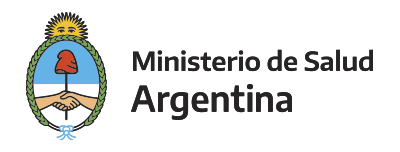Use este identificador para citar ou linkar para este item:
http://sgc.anlis.gob.ar/handle/123456789/2570| Campo DC | Valor | idioma |
|---|---|---|
| dc.contributor.author | Noya, Farah C | es |
| dc.contributor.author | Carr, Sandra E | es |
| dc.contributor.author | Thompson, Sandra C | es |
| dc.date.accessioned | 2023-04-06T20:06:00Z | - |
| dc.date.available | 2023-04-06T20:06:00Z | - |
| dc.date.issued | 2022-05-02 | - |
| dc.identifier.uri | http://sgc.anlis.gob.ar/handle/123456789/2570 | - |
| dc.description | Fil: Noya, Farah C. Medical Education Unit, Faculty of Medicine, Pattimura University; Indonesia | es |
| dc.description | Fil: Carr, Sandra E. Division of Health Professions Education, School of Allied Health, University of Western Australia; Australia | es |
| dc.description | Fil: Thompson, Sandra C. Western Australian Centre for Rural Health, The University of Western Australia; Australia | es |
| dc.description.abstract | Complex factors influence physicians' decisions to remain in rural and remote (RR) practice. Indonesia, particularly, has various degrees of poor governance contributing to physicians' decisions to stay or leave RR practice. However, there is a paucity of literature exploring the phenomenon from the perspective of Indonesian RR physicians. This study explores physicians' lived experiences working and living in Indonesian RR areas and the motivations that underpin their decisions to remain in the RR settings. An interpretative phenomenological analysis was utilised to explore the experiences of 26 consenting voluntary participants currently working in the RR areas of Maluku Province. A focus group discussion was undertaken with post-interns (n = 7), and semi-structured interviews were undertaken with junior (n = 9) and senior physicians (n = 10) working in district hospitals and RR health centres. Corruption was identified as an overarching theme that was referred to in all of the derived themes. Corruption adversely affected physicians' lives, work and careers and influenced their motivation to remain working in Indonesia's RR districts. Addressing the RR workforce shortage requires political action to reduce corruptive practice in the districts' governance. Establishing a partnership with regional medical schools could assist in implementing evidence-based strategies to improve workforce recruitment, development, and retention of the RR medical workforce. | es |
| dc.language.iso | en | es |
| dc.relation.ispartof | International journal of environmental research and public health | es |
| dc.relation.ispartofseries | Int J Environ Res Public Health;19(9)2022:1-20 | - |
| dc.subject | Selección de Personal | es |
| dc.subject | Gestión Clínica | es |
| dc.subject | Gobernanza | es |
| dc.subject | Corrupción | es |
| dc.title | Commitments, Conditions and Corruption: An Interpretative Phenomenological Analysis of Physician Recruitment and Retention Experiences in Indonesia | es |
| dc.type | Artículo | es |
| dc.identifier.doi | 10.3390/ijerph19095518 | - |
| item.cerifentitytype | Publications | - |
| item.languageiso639-1 | en | - |
| item.openairecristype | http://purl.org/coar/resource_type/c_18cf | - |
| item.grantfulltext | open | - |
| item.openairetype | Artículo | - |
| item.fulltext | With Fulltext | - |
| Aparece nas Coleções: | Artículos | |
Arquivos neste item:
| Arquivo | Descrição | Tamanho | Formato | |
|---|---|---|---|---|
| 10.3390ijerph19095518.pdf | 588.64 kB | Adobe PDF | Ver/Aberto |
Visualização de página
109
Checado em 22/09/2025
Download(s)
8
Checado em 22/09/2025
Google ScholarTM
Checar
Altmetric
Altmetric
Os itens no repositório estão protegidos por copyright, com todos os direitos reservados, salvo quando é indicado o contrário.

